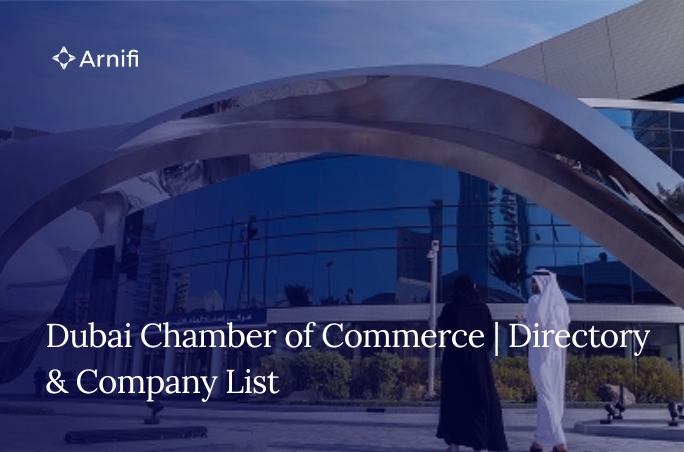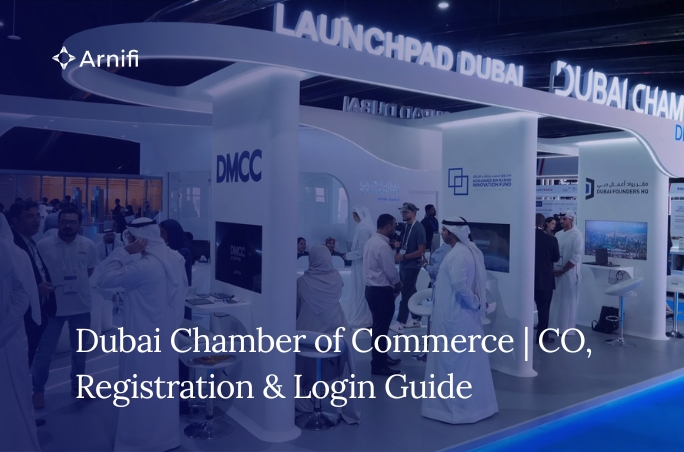How to Obtain a Crypto License in Dubai Successfully
by Shethana Sep 16, 2024  13 MIN READ
13 MIN READ

Getting a crypto license is more than just filling out a form. It is an important step for businesses that want to grow and succeed over time. Having a license helps build trust and makes investors feel more confident. A license shows that a regulatory body has reviewed your business plan and operations. This means you meet certain standards for finance, security, and following the rules.
Also, working with a license gives you a way to operate legally. It helps reduce risks that come with this changing industry. It shows you care about following AML/KYC rules and stopping financial crime, which increases trust from people involved.
In simple terms, a crypto license acts like a badge of trust. It gives your business a better chance to stand out in a global market where transparency and trust are very important.
Overview of Dubai’s Crypto Regulatory Landscape
Dubai has a forward-thinking approach to cryptocurrencies. Its rules are flexible and keep up with changes in blockchain technology. The Financial Services Regulatory Authority (FSRA) in the Abu Dhabi Global Market (ADGM) was one of the first in the area to set clear rules for crypto assets.
The Securities and Commodities Authority (SCA) also has an important part in making the rules. Their guidelines on crypto assets, along with those from the UAE Central Bank, give a clear path for licensing, anti-money laundering (AML), know your customer (KYC) rules, and protecting investors.
This combined approach creates a strong and changing set of rules. It attracts businesses from around the world and makes Dubai a top location for crypto ventures looking for a safe and well-regulated space.
Preliminary Steps Before Applying for a License
Before starting the crypto license application process in Dubai, you need to prepare carefully. It is a good idea to get help from legal experts who know about fintech and cryptocurrency. They can help you choose the right type of license, set up your business, and understand what is required for your business activities.
Moreover, a strong business plan is very important. This plan should explain your goals, target market, financial projections, and how you will follow the rules. A detailed business plan shows your dedication to running a successful and legal cryptocurrency business. This can help your application look better and improve your chances of getting approved.
Identifying the Right Type of Crypto License for Your Business
The type of crypto license you need in Dubai will depend on what your business plans to do. If you want to run a cryptocurrency exchange, offer custody services for digital assets, or help with crypto-to-fiat transactions, you will need a special license just for those activities.
Dubai has different free zones that are designed for crypto businesses. Each zone has its own rules and benefits. For example, the DMCC Crypto Center in the Dubai Multi Commodities Centre provides a helpful environment for crypto companies. It offers licenses specifically for trading, exchange platforms, and asset management.
Choosing the right license is very important. It helps you stay within the law and avoid problems later. Therefore, it is a good idea to talk to legal experts who understand Dubai’s crypto rules. They can help you find the right license for your business model.
Key Legal Frameworks and Regulations to Consider
Setting up a crypto business in the United Arab Emirates takes careful thought about the strong laws in place. The UAE has strict rules to fight money laundering and terrorist financing, and crypto businesses must follow these. Following the AML/CFT laws from the Central Bank of the UAE is a must.
It’s important to register your crypto business as a legal entity. You might need to start a company in a special area, like a free zone such as the ADGM or DMCC, or register it on the mainland. Each option has its own benefits and rules. Picking the right location needs careful thought about your business activities, taxes, and how you will operate.
It’s a good idea to work with legal experts to handle the details of company formation. They can help make sure that your chosen setup meets your long-term goals and follows all the needed regulatory requirements.
Beginner’s Guide to Crypto Licensing in Dubai
Navigating crypto licensing in Dubai can feel overwhelming. However, having a clear plan can make it much simpler. The first step is to understand how the UAE views digital currencies. Also, you need to know the roles of groups like the DFSA and SCA as they help shape this changing field.
It is important to learn about the different types of licenses, how to apply for them, and the rules you need to follow. Luckily, there are many resources available. You can find legal consultants who know about crypto regulations. They can help you through the process and make sure your application goes well.
Essential Resources and Equipment Needed
Starting your crypto business in Dubai means you need to gather some important documents. You will usually need a good business plan that shows your business model. This plan should include your financial forecasts and rules to follow. You also have to provide identification for all the company’s shareholders and directors.
If you want to set up a cryptocurrency exchange, you might need to show proof of a strong IT system, security measures, and a way to deal with customer issues. The exact documents can change based on whether you choose a mainland or free zone and the kind of crypto license you want.
It’s a good idea to work with experts in company formation. They can help you with the documents needed, making sure you follow all the rules set by the authorities.
Understanding the Financial and Legal Implications
Before starting a crypto business in Dubai, it’s important to understand the financial and legal aspects. Your financial projections should not only include expected revenue. You need to think about other costs, too. These include licensing fees, compliance costs, technology needs, and daily operational expenses.
Following regulatory requirements means you need to spend money. You must have strong AML/KYC systems, data security measures, and regular audits. These costs should be part of your financial plan.
Additionally, opening a corporate bank account for your crypto business in Dubai can be hard. Banks have strict due diligence processes. It’s best to start this process early and work with banks that are known to be friendly to cryptocurrency to make things easier.
Step-by-Step Process to Acquire a Crypto License
Securing a crypto license in Dubai requires a clear plan to meet the needs of the regulatory authorities in this sector. The process starts by choosing the right type of license based on your business activities in the crypto field.
Next, you need to register your business and provide the needed documents. You must also show that you follow AML/KYC rules and security standards. Finally, you will go through a due diligence process. Each step needs careful attention to detail to prevent delays and ensure a good result.
Step 1: Registering Your Business Entity in Dubai
The first step to getting a crypto license in Dubai is registering your business. You need to choose a legal structure for your business model. This could be a limited liability company (LLC), a branch office, or a subsidiary of a foreign company.
After this, you must pick a jurisdiction for your business. You can choose between a free zone like the Dubai International Financial Centre (DIFC) or the mainland. Each choice has different rules, benefits, and limits on taxes, business activities, and how far you can operate.
The registration process includes sending important documents. You will need to provide your business plan, details about ownership, and ID documents for shareholders and directors to the right authorities.
Step 2: Choosing the Correct Free Zone or Mainland Jurisdiction
Choosing the right place for your crypto business is very important. It can affect things like taxes, how you operate, and rules you have to follow. In Dubai, there are many free zones that cater to different industries. Some of these, like the DMCC and Dubai Airport Free Zone Authority, are becoming known for being friendly to crypto businesses.
Free zones provide benefits. You can own your business completely without needing local partners. There are also tax breaks and simple processes to start your business. But, it’s key to pick a free zone that fits your business activities. Some zones limit what types of crypto operations you can run.
If you choose to work on the mainland, you get more access to the market in the UAE. However, there are additional rules and requirements. It is a good idea to talk to experts in business setup. They can help you find the best location for your specific needs.
Step 3: Preparing and Submitting Required Documents
Once you pick your area, the next step is to get ready and hand in the necessary documents for your crypto license application. If you are applying for a commercial license to run a crypto business in Dubai, you must provide a detailed business plan. This plan should share your business goals, how you will operate, and your financial projections.
You will also need to send in copies of the company’s rules, details about shareholders and directors, and proof of address. Some licenses, like a crypto exchange license, may ask for extra documents. This can include policies for anti-money laundering (AML) and know your customer (KYC), security measures, and proof of capital.
It is important to pay the required application fees when you send your documents. This step will help avoid any delays in processing. The fees depend on the type of license and where you are applying.
Step 4: Complying with Due Diligence and Economic Substance Requirements
Dubai’s regulatory authorities focus a lot on due diligence and economic substance rules for crypto businesses. They check the backgrounds of all shareholders and directors. This ensures that their reputation and sources of funds are real.
The economic substance rules say that companies must show a physical presence in the UAE. They need enough staff and resources to run their crypto operations. This helps assure authorities that your business is really working in the area and helping the local economy.
Additionally, it’s essential to have strong anti-money laundering (AML) and counter-terrorist financing (CFT) rules. This means having clear Know Your Customer (KYC) procedures, monitoring systems for transactions, and specific compliance officers. These steps are needed to reduce risks of financial crime.
Step 5: Finalizing the Application and Awaiting Approval
With all the necessary documents ready, the last step is to submit your completed application form to the right authority. If you are starting your business in the Abu Dhabi Global Market (ADGM), you will, send it to the Financial Services Regulatory Authority (FSRA). If it’s in the Dubai International Financial Centre (DIFC), you will send it to the Dubai Financial Services Authority (DFSA) or the appropriate free zone authority.
The regulatory body will carefully review your application. They will look at your business plan, financial health, compliance steps, and if you follow all the rules for cryptocurrency trading and related activities.
The approval time can change based on how complicated your application is and the workload of the authority. Usually, it may take a few weeks to a couple of months. Keeping clear communication with the authorities and quickly answering any questions can help speed things up.
Benefits of Holding a Crypto License in Dubai
Having a crypto license in Dubai offers many benefits. It shows that your business follows the rules and is reliable in this fast-changing industry. This improves your reputation and draws in investors and customers who value honesty and following the law.
With a license, you also get to use Dubai’s strong financial system, which includes banking services designed for crypto businesses. This makes your financial operations easier and helps your business grow in a safe and regulated setting.
Enhanced Credibility and Investor Confidence
One of the biggest benefits of getting a crypto license in Dubai is the credibility it adds to your business. Since the cryptocurrency industry is new and changes quickly, following the rules set by a central authority helps build investor trust.
Having a license shows that a recognized regulatory body has checked your business model, security steps, and financial health. This clearer view builds trust. It makes investors feel safe when they use your platform, knowing their money is in good hands.
Also, working with a license helps you show your brand as a trusted name in the global cryptocurrency industry. It shows you care about fair and open business practices. This sets you apart from unregulated businesses and helps strengthen your place in a tough market.
Access to a Growing Market and Financial Ecosystem
Dubai is a top place for cryptocurrency. It brings in many types of investors, business people, and blockchain fans. Its good location and friendly business rules help create a strong financial setting, especially for fintech and crypto.
Having a crypto license in Dubai gives you access to this lively ecosystem. It allows you to connect with many potential partners, investors, and clients who want to work with trusted and regulated crypto companies. This can lead to new partnerships and open the door to other markets and business chances.
Also, Dubai’s strong financial setup, with a good banking system and helpful rules, gives crypto companies a solid place to grow and succeed in the region and elsewhere.
In conclusion, getting a crypto license in Dubai is a smart choice for businesses. It helps build trust, enter a growing financial market, and earn investor support. To get a crypto license, you should follow the necessary steps. This includes picking the right type of license, following legal rules, and staying compliant. It is also important to understand your tax responsibilities and plan for smooth operations after getting licensed. With Dubai’s friendly rules, having a crypto license can create new chances while keeping your business in line with changing regulations. This leads to steady growth and success in the crypto world.
Frequently Asked Questions
What is the minimum capital requirement for a crypto license in Dubai?
The amount of money needed for a crypto license in Dubai can change. This depends on the type of crypto license you want, the free zone you choose, and how big your business activities are for cryptocurrency companies.
How long does it take to obtain a crypto license in Dubai?
The time it takes to get a crypto license in Dubai can change. It depends on how complex the crypto company’s application is. It also depends on the business type and license you choose. The speed of the application process plays a role too.
Top UAE Packages

Related Articles
Top UAE Packages



